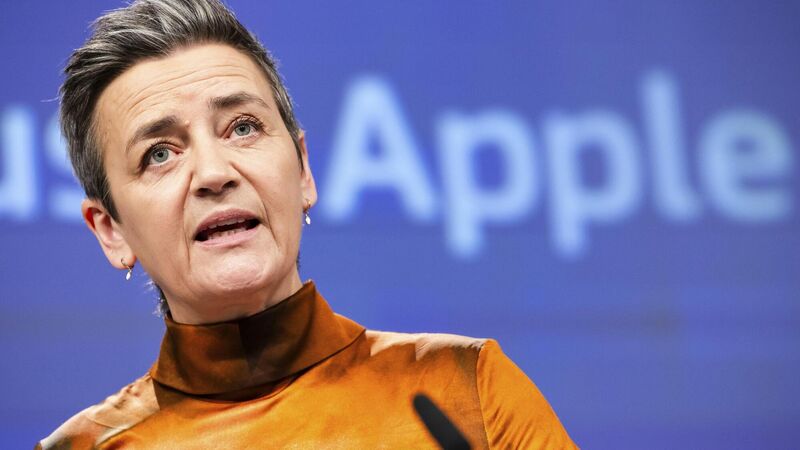Eamon Quinn: Apple and other Big Tech firms had a week they would prefer to forget

EU Commission vice president Margrethe Vestager: Apple and Google’s app store rules will be targeted in the first probes under the Digital Markets Act.
Apple, Google, and Meta — and the thousands of jobs and the billions of corporate tax euros they pay to Ireland — have weathered so many challenges down the years that it would be easy to overlook what regulators in Washington and Brussels have just unleashed in the past few days.
Lawsuits and full-scale probes on both sides of the Atlantic have ignited talk that governments will consider some sort of break-up of the iPhone giant, Google, and other US tech giants as the only way to remedy their market dominance.












